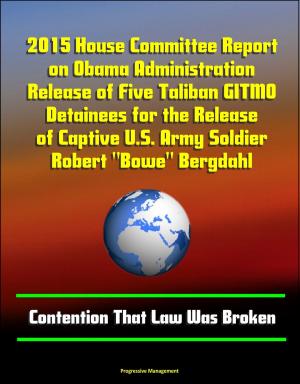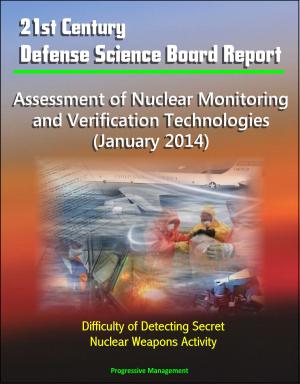Defense Is From Mars, State Is From Venus: Improving Communications and Promoting National Security - Covering Peacekeeping, Foreign Policy, and the Character Traits of Military Officers and Diplomats
Nonfiction, History, Military, United States, Social & Cultural Studies, Political Science, International| Author: | Progressive Management | ISBN: | 9780463156186 |
| Publisher: | Progressive Management | Publication: | April 25, 2018 |
| Imprint: | Smashwords Edition | Language: | English |
| Author: | Progressive Management |
| ISBN: | 9780463156186 |
| Publisher: | Progressive Management |
| Publication: | April 25, 2018 |
| Imprint: | Smashwords Edition |
| Language: | English |
This excellent report, widely referenced in the military community, has been professionally converted for accurate flowing-text e-book format reproduction.
Unprecedented challenge and change are the only consistent characteristics of a post Cold War world rapidly approaching the end of the millennium. Today we have a world in which sophisticated weapons, information technology, and global communications are available on the open market, the contrast between rich and poor nation states is increasingly sharp, and the ability of terrorists organizations to directly threaten United States interests in increasing daily.
Two pillars of our national security strategy-Department of State (diplomacy), and the Department of Defense (military)-are increasingly thrust together in peacekeeping, peace enforcement, and humanitarian missions such as Bosnia, Haiti, and Somalia to develop and implement agreements or programs for achieving foreign policy goals. A "marriage of necessity and convenience" between these two temperamental cultures is slowly evolving; a relationship built on trust and respect, but with each still wary of the other.
This paper examines the character traits, institutional values, and personality preferences of each institution. The current peacekeeping mission in Bosnia, considered a harbinger of the future, is then used as a case study. Finally, recommendations for improving communications and interaction between the two are offered.
This excellent report, widely referenced in the military community, has been professionally converted for accurate flowing-text e-book format reproduction.
Unprecedented challenge and change are the only consistent characteristics of a post Cold War world rapidly approaching the end of the millennium. Today we have a world in which sophisticated weapons, information technology, and global communications are available on the open market, the contrast between rich and poor nation states is increasingly sharp, and the ability of terrorists organizations to directly threaten United States interests in increasing daily.
Two pillars of our national security strategy-Department of State (diplomacy), and the Department of Defense (military)-are increasingly thrust together in peacekeeping, peace enforcement, and humanitarian missions such as Bosnia, Haiti, and Somalia to develop and implement agreements or programs for achieving foreign policy goals. A "marriage of necessity and convenience" between these two temperamental cultures is slowly evolving; a relationship built on trust and respect, but with each still wary of the other.
This paper examines the character traits, institutional values, and personality preferences of each institution. The current peacekeeping mission in Bosnia, considered a harbinger of the future, is then used as a case study. Finally, recommendations for improving communications and interaction between the two are offered.















